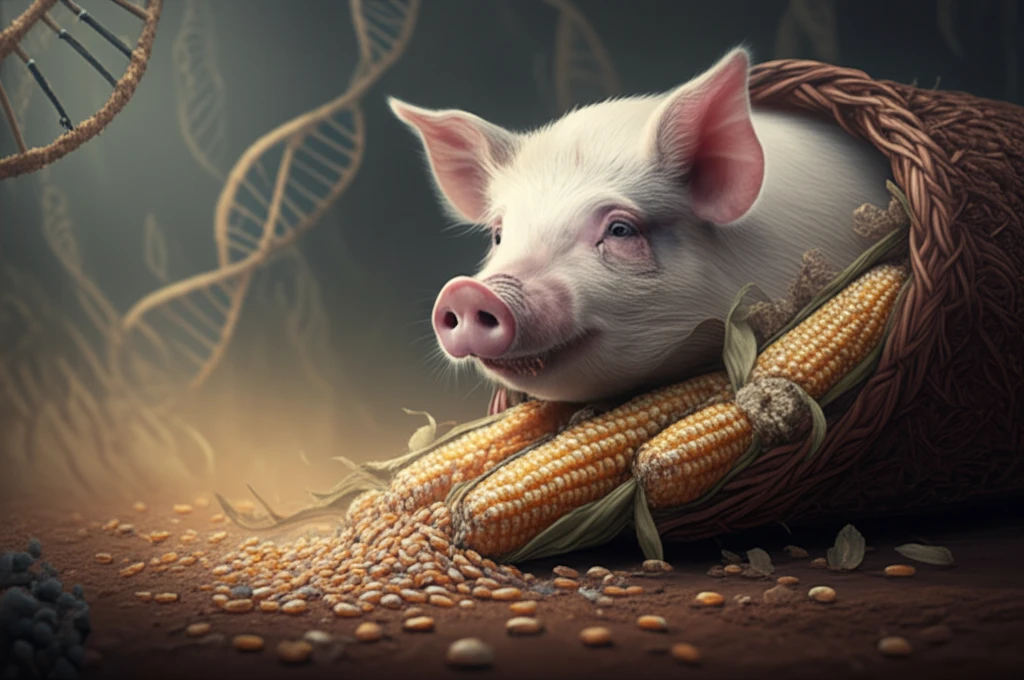
Pig Out on Health: How Hog Diets Could Unlock Metabolic Secrets
"Could what pigs eat lead to breakthroughs in treating human obesity, diabetes, and heart disease? New research explores how corn byproducts in pig diets affect gene expression, offering clues to combatting metabolic disorders."
For years, farmers have strategically crafted animal diets to optimize meat production. Now, a surprising new avenue of research is exploring the impact of these diets on gene expression, potentially uncovering novel insights into human health. A recent study published in BMC Genomics investigates how feeding pigs corn dried distillers grains with solubles (cDDGS)—a byproduct of biofuel production—affects the expression of genes in their adipose tissue (backfat).
The researchers, led by Maria Oczkowicz, aimed to understand how cDDGS, commonly used in pig feed, influences metabolic and cardiovascular health. cDDGS is rich in protein, fiber, and unsaturated fatty acids, making it a cost-effective alternative to soybean meal. However, high levels of cDDGS can negatively impact backfat quality, prompting the addition of saturated fats like beef tallow or coconut oil to counteract this effect.
This study's innovative approach is in line with the growing recognition of pigs as valuable models for understanding human physiology, given their similarities in organ size and function. The findings suggest that seemingly simple dietary adjustments in animals could hold the key to preventing and treating complex human diseases.
Unlocking Genetic Secrets Through Pig Diets

The study divided crossbred pigs into four groups, each receiving an isoenergetic diet with varying amounts of cDDGS and different fat sources: rapeseed oil, beef tallow, or coconut oil. After two months, RNA sequencing was performed on backfat samples to analyze gene expression changes. The researchers focused on identifying differentially expressed genes (DEGs) – genes whose activity was significantly altered by the different diets.
- Metabolic Master Switch: cDDGS appears to activate genes controlling key metabolic processes, potentially improving energy utilization and fat metabolism.
- Brain Health Connection: The link to Huntington's and Alzheimer's pathways suggests a surprising impact on neurodegenerative processes.
- Inflammation Control: Changes in complement and coagulation cascades indicate a role in modulating the inflammatory response.
- Fatty Acid Fine-Tuning: cDDGS influences the expression of genes involved in the synthesis and breakdown of fatty acids, crucial for overall metabolic balance.
The Future of Feed and Human Health
This research highlights the intricate relationship between animal nutrition and human health. The findings suggest that including cDDGS in animal diets can positively influence the expression of genes with therapeutic potential for metabolic, cardiovascular, and neurodegenerative diseases. While further research is needed to fully elucidate the underlying molecular mechanisms and potential long-term effects, this study opens up exciting new avenues for exploring the bioactive ingredients of cDDGS and their potential applications in both animal and human nutrition. Could the secret to better health be found in what we feed our livestock?
